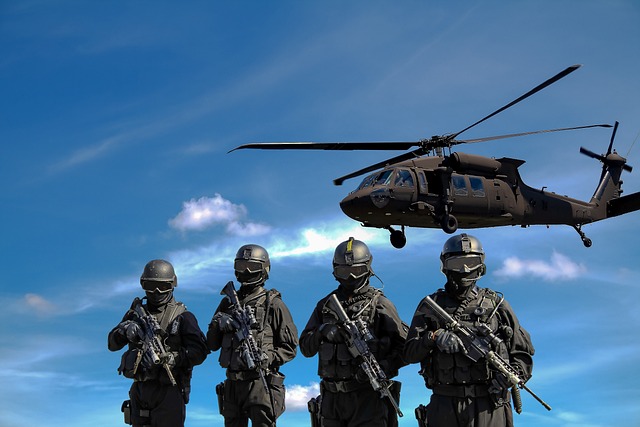At the close of a day in the Persian Gulf, as the sun sets and shadows stretch across the horizon, the world watches with growing concern. The silhouettes of U.S. warships stand against the twilight, marking a formidable presence that speaks volumes about the tensions brewing beneath the surface.
The focal point of these tensions? A potential proxy war between the United States and Iran, poised to reshape the geopolitical landscape of the Middle East.
Background
The relationship between the U.S. and Iran has long been a complex and volatile one, defined by decades of political maneuvering, economic sanctions, and indirect confrontations. Recent developments have only heightened these tensions, with both nations engaging in strategic posturing.
The collapse of the Joint Comprehensive Plan of Action (JCPOA), also known as the Iran nuclear deal, has further exacerbated the situation, pushing the nations toward the brink of conflict.
Proxy warfare, a form of conflict where opposing powers use third parties to do their bidding, has become a prominent strategy in international politics. Unlike direct military engagements, proxy wars allow nations to exert influence and achieve objectives while minimizing direct involvement.
For the U.S. and Iran, proxy warfare presents an opportunity to advance strategic interests without engaging in outright war.
Key Players and Motivations
The U.S. Perspective
The United States seeks to maintain regional stability, protect its allies, and counter Iranian influence. Its military presence in the Middle East is a means of safeguarding oil routes and ensuring the security of partners like Israel and Saudi Arabia.
Iran’s Objectives
Iran aims to assert its influence across the Middle East, often through proxies such as Hezbollah and militias in Iraq and Syria. This approach enables Iran to expand its reach while limiting direct exposure to military conflict.
The Role of Proxies
Both nations utilize proxy groups to project power and influence, creating a complex web of alliances and conflicts that complicate the geopolitical landscape.
Potential Scenarios and Implications
Limited Engagements vs. Regional Conflict
A proxy war could range from isolated skirmishes to a broader regional confrontation involving multiple actors. Each scenario carries its own risks and consequences for regional stability and global security.
Impact on Regional Stability
A proxy war would likely exacerbate existing conflicts and create new ones, destabilizing countries like Iraq, Syria, and Lebanon. This instability could lead to humanitarian crises and displacement.
Global Economic Repercussions
The Middle East’s role as a key energy supplier means any conflict would have significant economic impacts, potentially disrupting global oil markets and affecting economies worldwide.
The Influence of External Powers
Russia and China
Russia and China play influential roles in Middle Eastern geopolitics and have vested interests in the outcomes of any U.S.-Iran proxy conflict. Both nations seek to expand their influence and challenge U.S. dominance, often providing economic and military support to regional actors aligned with their strategic goals.
European Union and International Bodies
The European Union and other international organizations strive to mediate tensions and facilitate dialogue between conflicting parties. While often limited by differing member state priorities and geopolitical limitations, their involvement underscores the global nature of Middle Eastern conflicts and the importance of collective diplomacy in fostering peace.
Pathways to De-escalation
Diplomatic Efforts
Despite the tensions, diplomatic channels remain open. Efforts by international organizations and key stakeholders aim to prevent further escalation and find a peaceful resolution.
Challenges and Opportunities
De-escalation requires overcoming significant challenges, including deep-rooted mistrust and competing interests. However, successful diplomacy could lead to long-term regional stability and peace.
Long-term Strategies
Sustainable peace will require addressing underlying issues, such as economic development and governance, to prevent future conflicts and promote stability.
Conclusion
The U.S.’s preparations for a potential proxy war with Iran underscore the high stakes involved in this geopolitical chess game. While the military buildup serves as a deterrent, it also raises the risk of unintended escalation. The international community must remain vigilant and committed to diplomatic solutions to avert conflict and ensure peace in the Middle East.
For those seeking deeper insights into the complexities of proxy wars, the humanitarian impact of conflict, or technological advancements in warfare, Documentary Times offers a range of detailed analyses and articles. This platform provides valuable perspectives on global political dynamics and the intricate issues surrounding modern warfare. Exploring resources like these can enhance understanding and foster informed discussions on international relations and security challenges.
